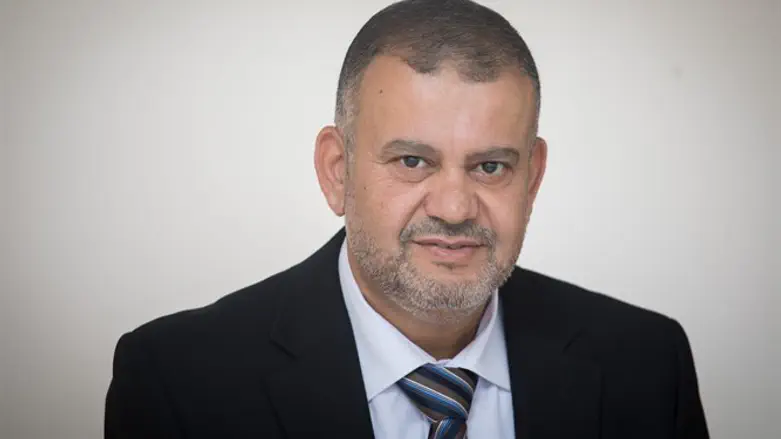
MK Walid Taha expounded on his opposition to the new law banning LGBT conversion therapy, and clarified that Arab society does not accept the legitimacy of the gay way of life.
MK Walid Taha (Joint Arab List), from the Ra'am faction of the party affiliated with the Islamic Movement, voted against the law banning "conversion treatments."
In an interview with Reshet Bet Radio this morning (Sunday), Taha explained his position on the issue, asserting that in general the LGBT phenomenon was practically non-existent in the Arab-Israeli sector.
"Homosexuality is almost non-existent in Arab society. If it does show up, it does so on a very limited basis" he stated.
Taha, a member of the Knesset Education Committee, said he voted according to the prevalent position of the Arab public. “We voted against the law. Arab society is overwhelmingly opposed to these types of things."
"Our society's moral, cultural, and ethical leadership is opposed to the this phenomenon as a legitimate practice and therefore we voted against," he added.
Just over a week ago, reports surfaced that an Arab Israeli-owned tahini company was facing backlash after its owner donated to a local LGBT rights group.
Julia Zaher, who owns Al Arz tahini, made a “significant” donation to a rights group called Aguda, in an attempt to create a hotline for Arabic-speaking LGBT Israelis. After Aguda tweeted its appreciation in Arabic and in Hebrew, some Arabs called for a boycott of the popular brand, which produces more than 20 tons of the sesame paste daily in its Nazareth plants. Videos posted to social media showed some shopkeepers trashing Al Arz products.
An Israeli news organization, Israel Hayom, first reported on the ongoing saga, with an extensive follow-up in The New York Times detailing it for a global audience. Al Arz tahini is distributed globally, with its adherents including the popular Israeli chef Yotam Ottolenghi.
“We have values that we follow,” Jabr Hejazi, one of the supermarket owners participating in the boycott, told The New York Times. “It’s a simple matter.”
The boycott is actually generating needed support for gay and transgender members of the Arab community, Arab LGBT activists told the newspaper.
But Zaher also came under fire for donating to an Israeli rights group, rather than an Arab Palestinian one. Aguda advocates for all LGBT people in Israel, regardless of their religion or ethnicity.
And a Palestinian Authority group, the Al Qaws for Sexual and Gender Diversity in Palestinian Society, criticized The New York Times for “eras(ing) Palestinian queer organizations” in its coverage. The reporter who wrote the story, Adam Rasgon, responded that the group’s executive director had declined to comment until he promised not to include Israeli Jews in the article. “Such constraints on the independence of our reporting are unacceptable,” he tweeted.